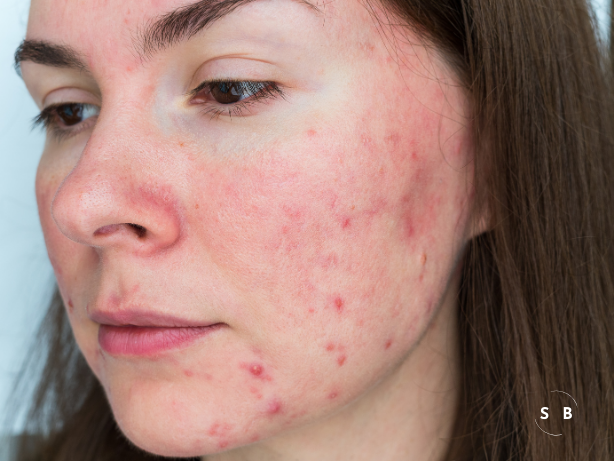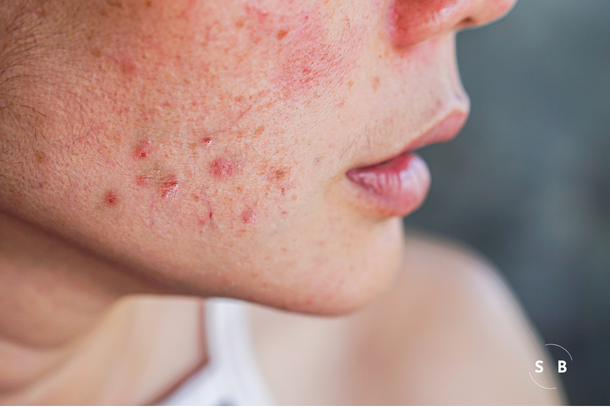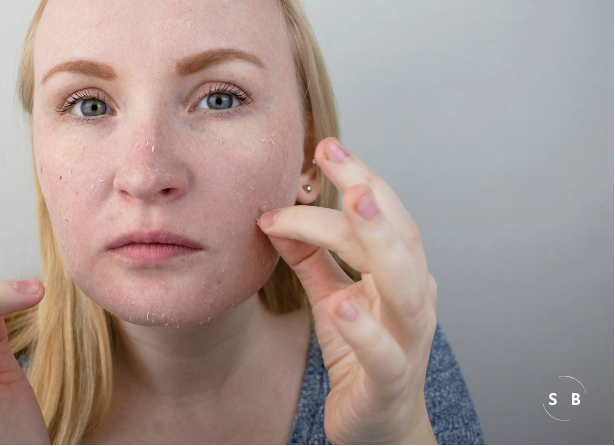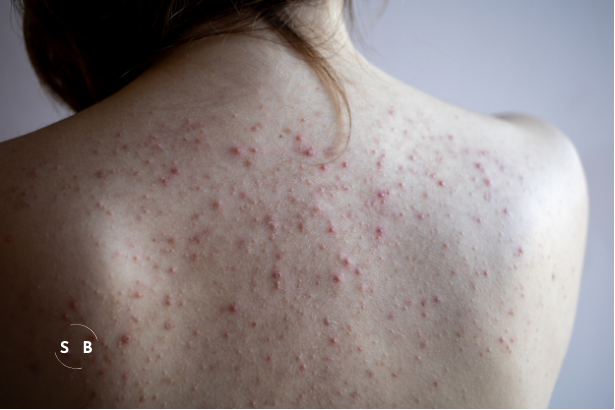Hey, everyone! In today’s post, we’re sharing dermatologist-approved tips for managing sensitive skin. Building a gentle skincare routine is essential for reducing irritation and supporting your skin barrier.
Sensitive skin requires a minimal approach with fewer ingredients and less exposure to potential irritants. Here are our top tips!
1. Keep Skincare Minimal
Less is more when it comes to sensitive skin. Avoid excessive skincare products and complex routines—many ingredients can increase the risk of irritation. The fewer ingredients a product has, the better. If you see a long ingredient list, it’s best to look for something simpler. Focus on the essentials: cleanser, moisturizer, and sunscreen. These three products are often all you need.
2. Reduce Cleansing Frequency
Our culture tends to overdo cleansing, which can strip away natural lipids essential for a healthy skin barrier. Over-cleansing can exacerbate dryness, irritation, and conditions like rosacea and eczema. For sensitive skin, try washing your face only once a day. If you enjoy washing twice daily, make sure it doesn’t worsen your symptoms.
It’s best to cleanse in the shower at the end of the day. This reduces the number of times your skin is exposed to water, which can also remove beneficial oils.
3. Patch-Test New Products
Patch-testing is crucial if you have sensitive skin, but it’s helpful for everyone. Apply a small amount of any new product to your jawline and wait 24 hours. If you experience redness, itching, or tingling, avoid using it on your face. Testing can help prevent unexpected reactions.
4. Avoid Irritating Ingredients
Many ingredients in skincare can irritate sensitive skin, especially as skin sensitivity can change over time due to factors like age, medication, or hormonal shifts. Minimizing irritating ingredients helps reduce the risk of irritation over time. Some of the main ingredients to avoid include:
- Fragrance – Fragrances can be sensitizing, interact poorly with other ingredients, and sometimes increase sensitivity to UV radiation. Always check labels, as fragrance can be hidden under terms like “toilet water,” which stems from the translation of “eau de toilette.”
- Menthol – While menthol has a cooling effect that can relieve itching, it can also cause irritation in sensitive skin types. Products marketed as “fragrance-free” sometimes contain fragrance-like compounds, so always read the ingredient list.
5. Consider a Skincare Fast
If your skin sensitivity seems heightened and you’re not sure which product is causing it, take a break from all skincare products. Avoid using anything other than sunscreen (and only a gentle, zinc-based sunscreen). This “fast” can help your skin reset and reduce the risk of continued irritation.
Sometimes, an allergy to a skincare ingredient can develop over time, even with products you’ve used for years without issue. When your skin feels overly irritated, taking a break can help you pinpoint the culprit.
6. Introduce New Products Slowly
Once you find products that work, it’s tempting to add more. But with sensitive skin, introducing multiple products at once can lead to irritation or make it harder to identify which product caused a reaction. Start with one new product at a time, and give your skin a few days to adjust.
7. Be Efficient with Bathing
When showering, keep it short and lukewarm—extreme temperatures can strip away natural oils and irritate sensitive skin. Aim for 5-10 minutes, using lukewarm water instead of hot. Washing your face in the shower is actually a great way to reduce how often your face is exposed to water. There’s a misconception that washing your face in the shower clogs pores, but this is a myth. Showering is a convenient time to cleanse your face without extra exposure to drying elements.
Cleure makes it easy to build a gentle, minimalist skincare routine. Their pH-balanced face and body wash is ideal for sensitive skin, as it’s both effective and non-drying. Their oil-free facial lotion, which contains a minimal amount of alpha hydroxy acid for added hydration, is a lightweight, non-irritating moisturizer. For sunscreen, Cleure’s SPF 40 with zinc oxide is an excellent choice—it’s water-resistant and gentle, making it ideal for all skin types.
We hope these tips help you manage your sensitive skin! Remember, the basics are all you need to support your skin: cleanse, moisturize, and protect with sunscreen.
Thank you for reading, and don’t forget to share these tips with friends who might benefit! As always, protect your skin with sunscreen and take care!








Leave a Reply